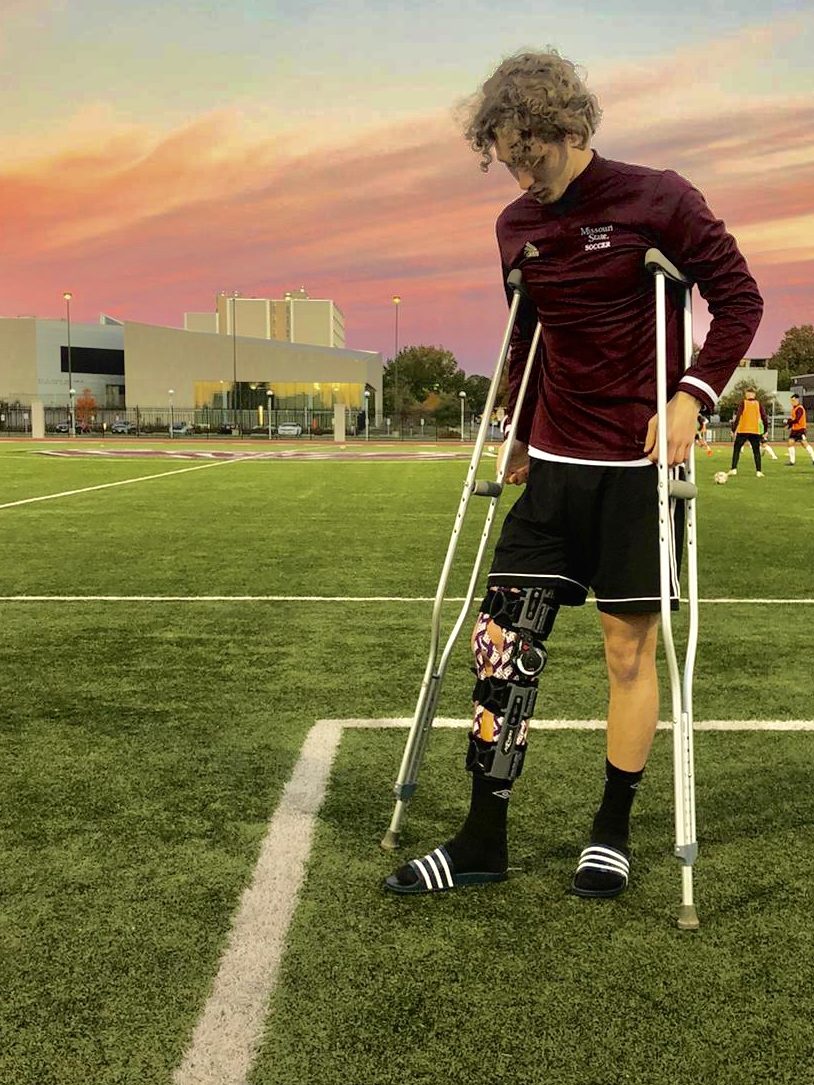Proudly Recapping AFH’s 2024 Mental Health Awareness Month
by Hailey Wetherill, MSSW
Why It Matters
In the realm of sports, mental resilience is often equated with athletic prowess. Athletes, recognized for their strong, steady minds that equip them for high performance and achievement, are perceived to be beacons of health and strength. However, beneath this facade lies the stark reality: athletes are just as susceptible to mental health disorders as the general population.
Defined by the World Health Organization (WHO) as a state of well-being enabling individuals to cope with life stressors, mental health encompasses much more than just the absence of illness. It is the foundation of an individual’s ability to function, thrive, and contribute to society. Unfortunately, for athletes, this foundation is often misunderstood or neglected.
Traditionally, sports psychology has focused on enhancing athletic performance rather than nurturing the holistic well-being of individuals. Athletes are often viewed solely through the lens of their athletic achievements, meaning that their humanity is often overshadowed by their athletic abilities. This narrow perspective has left a gap between the support athletes of all levels need and the support they receive.
The absence of a structured system for mental health screening, intervention, and support at elite levels of athletics exacerbates the issue. While organizations like the National Collegiate Athletic Association (NCAA) have started to acknowledge the mental health needs of student-athletes, there is still a lack of comprehensive support frameworks. Despite the increasing prevalence of mental health challenges among athletes – ranging from anxiety and depression to disordered eating and burnout – meaningful policy changes have been slow to materialize.
Legislation such as the “Protecting Young Victims from Sexual Abuse and Safe Sport Authorization Act” and the “Empowering Olympic, Paralympic, and Amateur Athletes Act of 2020” have made strides in safeguarding athletes from abuse. However, there are still wide gaps that persist around mental health support and resources.
Change Isn’t On It’s Way, It’s Here
In recent years, prominent athletes like Simone Biles, Naomi Osaka, and Kevin Love have courageously spoken out about their struggles and shed light on the pervasive issues of athlete mental health. Yet, for every voice that is heard, countless other athletes suffer in silence. The stigma surrounding mental health in sports remains a formidable barrier to progress in the field which is why Athletes for Hope (AFH) launched Whole Being Athlete in May 2021.
Addressing the current athlete mental health crisis requires a multifaceted approach. We started this year’s Mental Health Awareness Month by hosting Athlete Mental Health Week, alongside Hilinski’s Hope, and more recently, we held our second Athlete Mental Health Advocacy Day on May 21, at the U.S Capitol in Washington, D.C. The purpose of the event was to bring together athletes, mental health partners, and members of the Athlete Mental Health Alliance (AMHA) to advocate towards recognizing National Athlete Mental Health as a Basic Human Right.
The event was a tremendous success, with 68 registrants participating in a day of meaningful discussions, impactful legislative visits, and community-building activities. Some of the most notable moments occurred during our Town Hall conversation, led by Colton Underwood. The Town Hall featured personal stories and expert insights from two distinguished panels of speakers. These panels included Rawle Andrews, Executive Director of the American Psychiatric Association Foundation (APAF); Gina and Steve Meyer from Katie’s Save; Carin Gabarra, a retired USWNT player and head coach of the U.S. Naval Academy Soccer; Awvee Storey, a retired NBA player currently working in Corporate Sponsorships for the Chicago Sky; and Jaala James, an alumna of Howard University lacrosse.
In addition to our panels, participants engaged in over 20 legislative visits and dropped off folders at more than 20 other critical legislative offices, advocating for National Athlete Mental Health as a Basic Human Right. You can find the legislative platform from the day here and view the virtual Advocacy Toolkit with event materials and advocacy resources.
Join the Movement with Athletes for Hope
To sustain the momentum of advancing athlete mental health, AFH has created an Athlete Mental Health Petition to establish a framework supporting athletes at all levels–from youth sports programs to professional leagues. We believe that all athletes have the right to:
- Mental health support for performance on and off the field
- Timely referrals to mental health experts for psychological disorders and conditions
- Training, education and awareness focused on the importance of mental wellness, identifying mental health conditions, and finding mental health resources
- Coaches and trainers who are trauma-informed and some level of mental health training
- Equal and equitable access to mental health screenings, treatment and education
- Healthy bodies and healthy body images
- Support in career transition
- Adequately manage injury
- Confidential access to mental health services
- Support for athletes, coaches and teams after loss of life
- Funding towards impact and outcomes research on athlete mental health
- Positive and healthy coach-to-player relationships
As we reflect on the challenges facing athlete mental health, it is clear that a transformative shift is needed in how we support those who dedicate themselves to sport. It is important that we continue to stand together to ensure athletes receive the support they deserve, on and off the field. By advocating for comprehensive mental health frameworks and rights, we can create a culture where athletes thrive not only in their athletic pursuits but also in their overall well-being. Join Athletes for Hope today by signing on to our Athlete Mental Health Petition to build a brighter future for athlete mental health.






